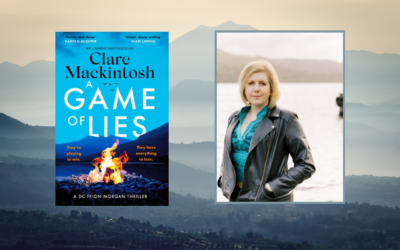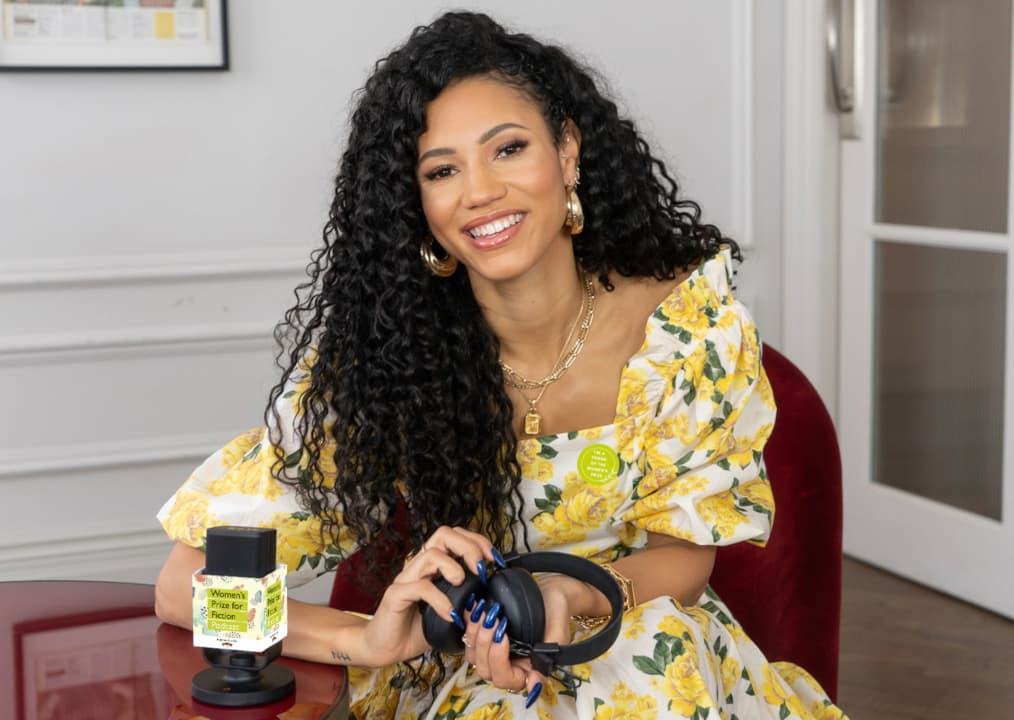
How to pitch your novel
Preparing to Pitch: The novelist salesperson “Can you summarise your novel in a sentence or two,” my marketer, Eloise asks,…


The Women’s Prize x Grazia First Chapter competition ran for 12 years and has now been discontinued, with 2022 being the last year the competition was run. We keep an archive of past winners and runners-up to inspire future writers to tell their stories. Scroll on to read the 2021 entry that stunned the judges and participating author Dorothy Koomson. Feeling inspired? You can enter our Discoveries programme for emerging writers. Learn more here.
This year’s First Chapter Competition, delivered in partnership with Grazia magazine, was our 11th annual competition – and our second competition since lockdown first began. Over 600 women entered, and this year’s judges were blown away by the standard of entries.
We are thrilled to announce that our winner is Naomi George, 31, a freelance marketing manager from London. She says: “After finishing a Creative Writing degree years ago and since being too scared to put ink to paper, this competition has made me finally conquer my fear of showing my writing to others.”
Our judges were Grazia’s Deputy Editor and author Kenya Hunt, assistant editor and author Emma Rowley, and bestselling author Dorothy Koomson, who wrote the opening paragraph for the competition. The judges were absorbed by how Naomi set up a promising tale with a twist. Dorothy will now mentor Naomi for a year as part of her prize, and Naomi will attend the Women’s Prize for Fiction Awards Ceremony on 8 September.
Our judges also selected two runners-up: Savitri Patel, 37, works for an education charity and lives in Leicester. After entering the First Chapter competition to see if she could kickstart her writing mojo again, her ambition is to find an agent and publish her first novel. Read Savitri’s entry here.
Her fellow runner-up is Imogen Tazzyman, 36, from Bollington, Macclesfield, works in advertising. She has wanted to be a writer ever since she won a competition aged seven with a poem about a hedgehog, and says: “I basically write a synopsis a day for my first novel – but inevitably life (baby, puppy, career, pandemic) gets in the way. So a synopsis it stays. Until now. Fingers crossed.” Read Imogen’s entry here.
If you’re an aspiring writer, join Kenya Hunt, Dorothy Koomson, editor and writer Mireille Harper, and literary agent Viola Hayden for our digital event ‘Putting Pen to Paper’ at 7pm on Tuesday 20 July . Buy your £5 ticket here > > >
‘When I fell‘
I’m very good at pretending I believe in love. No one can tell that I don’t. I can act as if a ‘special someone’ makes my heart flutter; I convincingly swoon at other people’s romantic joy. I even rustle up tears when a relationship ends. But my heart is a patchwork of honour badges, each stitched over a scar from believing in love before. So being a love sceptic keeps me safe and pain free. And then I fell down those stone steps near Brighton Pier. A stumble, a trip and several sharp bounces down, and there I was at the bottom. Agonised and humiliated. Too ashamed to move.
B.W. was there too.
So that was fun – being splayed out on my front, knees scraped, arse cheeks visible to the world, and all in front of the girl whose life I made moderately miserable at school.
I urged the universe to dissolve me into thin air. Nothing. I looked up at her, closed my eyes taut as possible then edged them open slowly. Still nothing. She must have thought I had a concussion or something, but really I was hoping it was one of those supposed anxiety dreams where you fall from a great height but simply twitch your leg in real life. My plea to the universe had no effect as BW’s face was very much there, and very certainly looking at me with escalating concern. The thought of her calling an ambulance, drawing more attention to my fallen state, bounced across my mind. Absolutely not happening. Not with the way lights and sirens bring crowds. So I slowly rearranged my bones into a sitting position up against the wall, pulling my skirt back down as I went. Following my lead, she knelt down close enough that I could smell the cocoa butter on her skin. That smell on a person always reminded me of a home I couldn’t quite identify. I batted the thought away.
‘You good?’ she said.
‘Yeah,’ I half-smiled, rubbing my now bleeding knee. ‘These shoes are…’ I stopped mid-sentence, lifting a shoe up by its broken strap.
I hoped she didn’t remember me. I was the girl who christened her BW in the first place – shorthand for Biological Warfare on account of the time she projectile vomited in the canteen in Year 8. Her real name, Sarah Okereke, became null and void after that at school. Instead, I led an ensemble
of spotty, insecure girls in a chorus of imitation retching every time she walked into a room. I hadn’t seen her since we were 16. She had certainly grown into herself. A teeny weeny Afro framed her dainty face and she’d filled out a bit in the body.
I swallowed as another memory washed over me. I remembered how, aged 13 or 14 and with only a seed of visible bust myself, I spread a rumour that Biological Warfare now stuffed her bra, and that she used the tissues to wipe up the trail of sick she left behind her. It was such a slow-witted insult and I don’t quite remember why I even said it, but I know in my constant grief about my teenage ‘not changing the way I wanted it to’ body, making her feel small made me feel all-powerful. Now my adult body just throbbed in pain.
She flopped down beside me and looked out at the faraway sea. I watched her, careful not to let her see me looking. Her lipstick- lacquered mouth crinkled into a smile that I couldn’t quite read. In response my brow furrow flickered, which was annoying as I had made a mental note to stop doing that just that morning. Fine lines were starting to make their mark. Her smile unsettled me and I couldn’t work out why – and then it became clear that this was a smile of realisation. Realisation that I had been the monster under her teenage bed all those years ago and that I wasn’t so scary any more. I suppose this was karma’s way of redressing life’s balance. That bitch.
‘Do you think you can get up?’ she offered.
‘Do you remember me?’ I countered, massaging my ankle.
Why I said that, I don’t know. We could have got up, said our goodbyes and gone about our lives. But instead the words bolted out of my mouth like magma and
I found myself wishing I were mute. She didn’t reply for a while and for a second the ache in my body deadened. I waited for a slap, a tear-filled volley of insults. I held still, knowing karma was getting ready to wrap her fingers around my neck. I decided whatever she was going to unleash on me I deserved entirely.
Instead BW exhaled, said it was a lifetime ago, then carried on looking at the sea. I felt that furrow between my eyes twitch again. I wanted to apologise, to tell her that I was sorry that I was such a hideous bitch back in the day, but I couldn’t quite compose words in an order that felt big enough. Instead I followed her lead and looked to the sea for inspiration. The slow pain- thump in my body returned.
She broke the silence with, ‘I used to have a crush on you when we were kids.’
It hung in the air while she reached into her bag to get me a tissue for my still bleeding knee.
Feeling inspired? For more writing insights and information about our Writer’s Toolkit below.

Preparing to Pitch: The novelist salesperson “Can you summarise your novel in a sentence or two,” my marketer, Eloise asks,…

Jacqueline Crooks’ debut novel Fire Rush was shortlisted for the Women’s Prize for Fiction and has been described by the…

In October 2020, we announced the winner of our tenth annual Women’s Prize x Grazia First Chapter Competition with a…

Clare Mackintosh is uniquely placed to offer advice on writing crime fiction. Not only is she an internationally bestselling and…
Tune into host Vick Hope and a line-up of incredible guests on our weekly podcast full of unmissable book recommendations.
